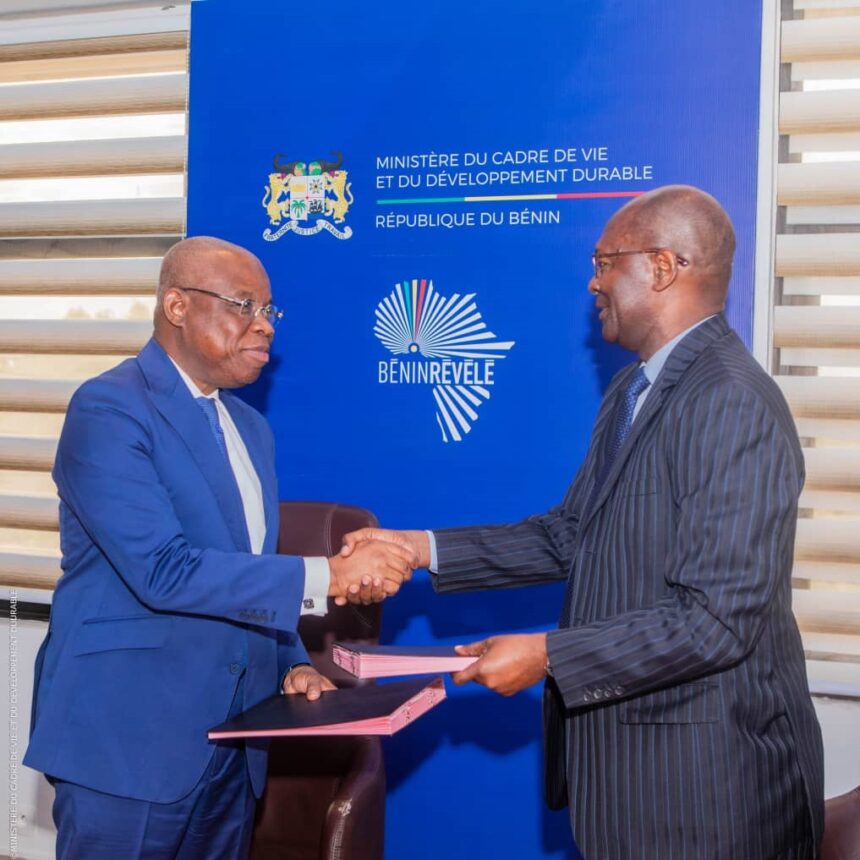The Minister of Living Environment and Sustainable Development José TONATO chaired on Thursday, July 21st, 2022 the session of signature of the financing agreement of the OCRI (Initiative for the Climate Resilience of the Ouémé Basin) Project between FAO and the Green Climate Fund.
This 35 million dollar project, including 18 million dollars from the Green Climate Fund, is an opportunity that consolidates the Government’s efforts to build the resilience of natural and human systems to the adverse effects of climate change. The intervention areas covered by the project are the municipalities of Zogbodomè, Zangnanado, Glazoué, Djougou, and Copargo for a period of six (06) years. In his speech, the Minister of Living Environment and Sustainable Development José TONATO said that « the Upper and Middle Ouémé Basin has been experiencing a constant increase in temperatures since the 1960s and this trend will continue under the conditions of climate change. Projections in both project areas indicate a general raising trend of daily temperatures of 1 to 3 °C for the period 2035-2064. Concerning rainfall, climate models indicate that average annual precipitation is expected to increase until the middle of the XXI century and then decrease until the end of the century in the Ouémé basin. This ecosystem, which is the Ouémé basin, is a key area for agricultural production, Benin’s main economic sector. Intending to provide a sustainable solution to this situation, the Minister of Living Environment and Sustainable Development (MCVDD/MFLSD) initiated the development of a concept note with the support of FAO, which submitted it to the Green Climate Fund. It has just been approved after several stages at the last session of the Institution’s Board. »
For the Ministerial Authority, the implementation of this project will reduce the vulnerability of 330,000 smallholder farmers and approximately 95,000 ha of ecosystem exposed to disturbance, climate change, and extreme weather events in the Upper and Middle Ouémé Basin. This global funding of 35 million dollars, including 18 million dollars from the Green Climate Fund, is in recognition of a long-standing commitment with FAO, a strategic partner on issues of food security and sustainable management of natural resources, to community resilience to the effects of climate change.
It should be noted that the OCRI initiative will ultimately: improve agricultural production through low-carbon and climate-resilient technologies by restoring ecosystem services in Upper and Middle Ouémé ; increase the resilience of farmers and agricultural systems in Upper and Middle Ouémé by promoting value chains supporting their livelihoods; improve the institutional and financial environment to promote low-carbon and climate-resilient land and water management in the main basins of the territory.



